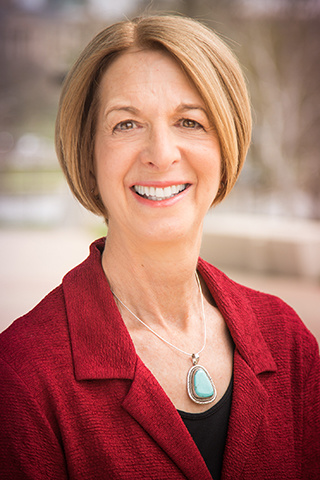There’s a banner hanging in our College of Public Health Building that invites prospective students to explore the University of Iowa’s new bachelor’s programs in public health. The banner says: “Public Health is making a difference. Be part of it.”

This message reflects sentiments we hear often from students about why they’re pursuing public health as an academic discipline and a future career. Young people (and some of us not as young) who study and work in public health want to make a difference and to be part of something larger than ourselves. In many ways, public health is a social movement building on core values of equity and justice, with the goal of achieving health and well-being for all.
Public health recognizes that health has relatively little to do with procedures and prescriptions that are delivered in a clinical setting and much more to do with what happens in people’s everyday lives. We need health care when we’re ill, but only about 10 percent of our health and well-being occurs in health care settings. Health is found in the safety of our homes and the neighborhoods where we live, in the quality of the water we drink and the air we breathe, in the availability of fresh, nutritious food in the schools our children attend, and in the stores and markets where we shop for our families. Changes we make to improve these aspects of our daily lives, along with measures like preventing tobacco and drug use, violence, and injuries, fundamentally enhance the health of our entire population.
As our understanding of health has evolved, so too has public health education grown. Once a highly specialized discipline reserved mostly for physicians, public health training is now geared toward people from a vast array of backgrounds and interests. Many of today’s public health professionals are, to be sure, biostatisticians and epidemiologists, but they are also psychologists and social workers, environmental specialists and safety engineers, health communicators and policy analysts.
Public health is one of the fastest growing undergraduate majors in the United States, and career opportunities in this field are expected to grow substantially in the years ahead. The establishment of new public health bachelor’s programs at the University of Iowa is a tremendous opportunity to move us to the forefront of innovation in undergraduate education. Faculty in the College of Public Health, working with colleagues across campus, have developed an exciting new curriculum that incorporates the very best of classroom instruction, along with experiential learning and service learning components. And many of our new undergraduate courses are open not only to public health majors, but to any UI student wishing to broaden their academic experience to include a health dimension.
At its core, public health is rooted in the understanding that health is much more than the absence of disease. It is a common good that we all have a stake in protecting and promoting. I invite students to check out the UI’s new undergraduate programs in public health. As we like to say, “Public Health is making a difference. Be part of it.”